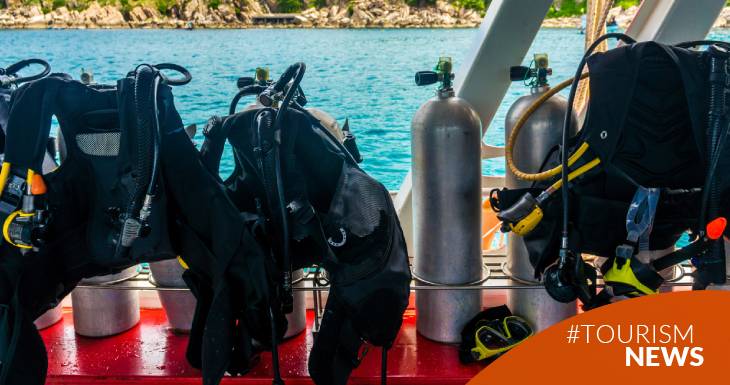Diving is one of the most fascinating activities for many tourists. The opportunity to explore the underwater world, full of life and unique landscapes, is unforgettable. However, if you are one of those who dive out of curiosity or fun, without being an expert, there is a key aspect that you may not know: it is not safe to fly immediately after an underwater dive. This seemingly minor detail could make the difference between a smooth trip and a serious health problem.
Why is it so important? When you dive, your body absorbs nitrogen due to the pressure of the water. If you fly too soon, the decrease in pressure in the airplane cabin can cause the excess nitrogen in your body to expand and form bubbles. These bubbles, although invisible, can block your blood vessels and cause serious consequences to your health such as decompression sickness. This medical condition can occur when nitrogen levels in the body are too high, and symptoms include headache, dizziness, shortness of breath, fatigue, and joint pain.
What other side effects can scuba diving have on your body before a flight?
- Fatigue: Being a demanding physical activity can cause fatigue in the body. If you travel on an airplane tired, you may experience increased jet lag and have difficulty adjusting to the new time zone.
- Dehydration: This could cause some discomfort and fatigue. If you travel dehydrated, you may experience headaches and other negative effects on your health.
- Clogged ears: Scuba diving can affect your ears and cause earwax plugs or infections. If you travel with clogged ears, it can cause discomfort and pain during the flight.
That's why it's important to take these precautions to avoid negative effects on your body.
- Wait at least 12 hours after single dives without decompression.
- Wait at least 18 hours after multiple no-decompression dives, whether you've done several in one day or over several days.
- Wait at least 18 hours (extending to 24 hours is recommended) for diving that requires decompression stops.
Experience the underwater world for the first time in a guided way to prioritize your safety, both in and out of the water.
Always make sure to do this activity with a qualified instructor, as is the most recognized diving certification in the world, PADI (Professional Association of Diving Instructors). These experts not only guarantee a safe experience by guiding you through the proper techniques and preventive measures, but they also educate you on the importance of respecting waiting times before flying.
The so-called baptism of diving is the gateway to the fascinating underwater world, ideal for those who want to live their first experience underwater without the need for previous experience or certifications. This introductory program includes a technical talk, basic breathing and buoyancy exercises, and a controlled dive in shallow waters. It is perfect for discovering the feeling of weightlessness, exploring marine life and deciding whether you want to delve deeper into this exciting sport.
Agencies that organize these experiences ask participants for:
- Previous medical check-up
- Adequate instruction
- Constant supervision
- Depth limits
- Hydration and rest
And they offer in the diving baptisms:
- Certification of the instructors by internationally recognized organizations such as PADI, SSI or NAUI
- Equipment in optimal conditions
- Diving insurance
- Compliance with local regulations
- Small group size
In addition to flying, it is important to avoid any activity that involves significant changes in altitude or atmospheric pressure, as it can increase the risk of developing decompression sickness. Some of these activities are:
- Climbing mountains or volcanoes.
- Traveling in cable cars or funiculars at high altitude.
- Driving through high mountain passes.
- Skydiving or paragliding.
Deep tissue massage and relaxing in a hot tub are also not recommended, as increasing blood flow can increase the risk of bubble formation.
It is certainly not a whim or an eccentricity; the need to wait to fly after diving responds to a very clear physical explanation. That is why it is so necessary for divers to ascend to the surface slowly, so that the body can progressively eliminate as much nitrogen as possible accumulated during diving.
Knowing the basic rules and having the support of certified professionals makes all the difference. Respect the recommended times before flying or doing activities at altitude, always listen to your instructor's instructions, plan ahead and prioritize your health.


